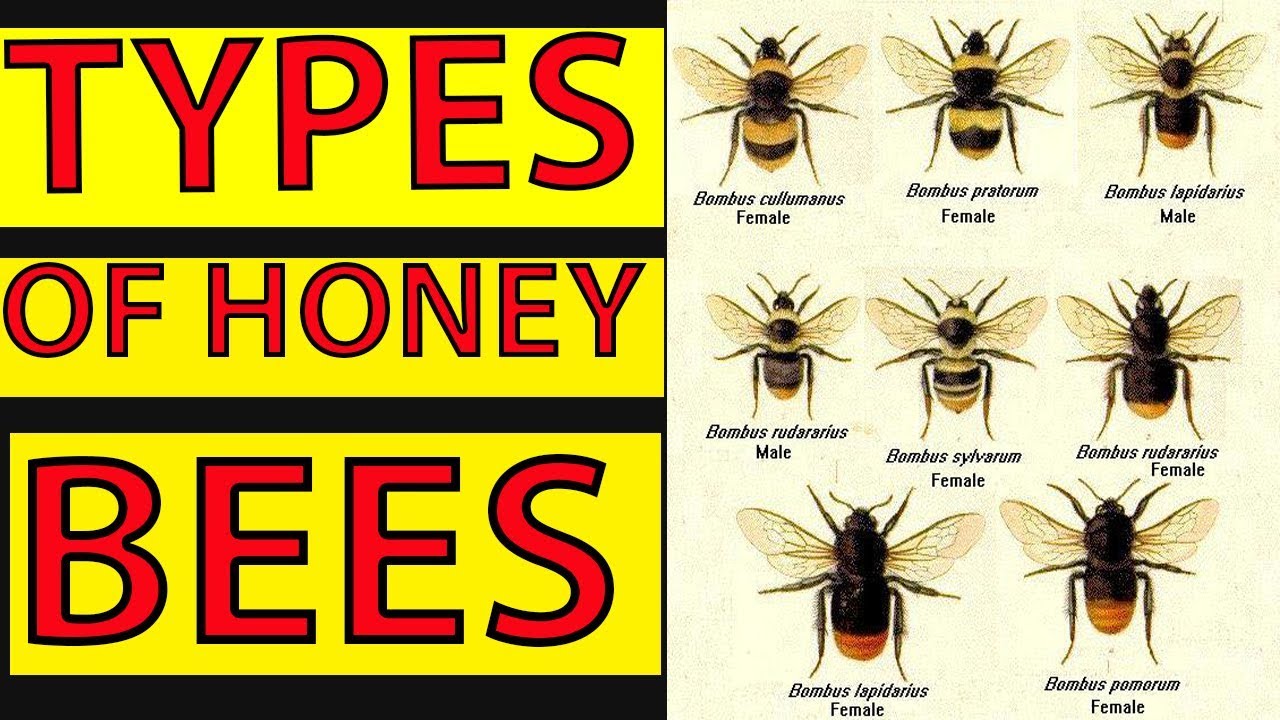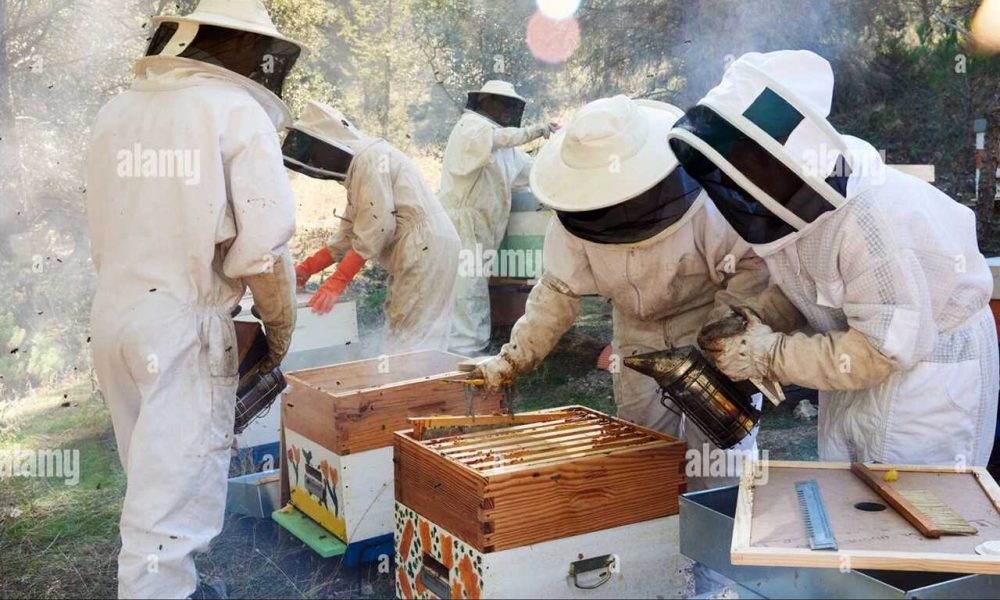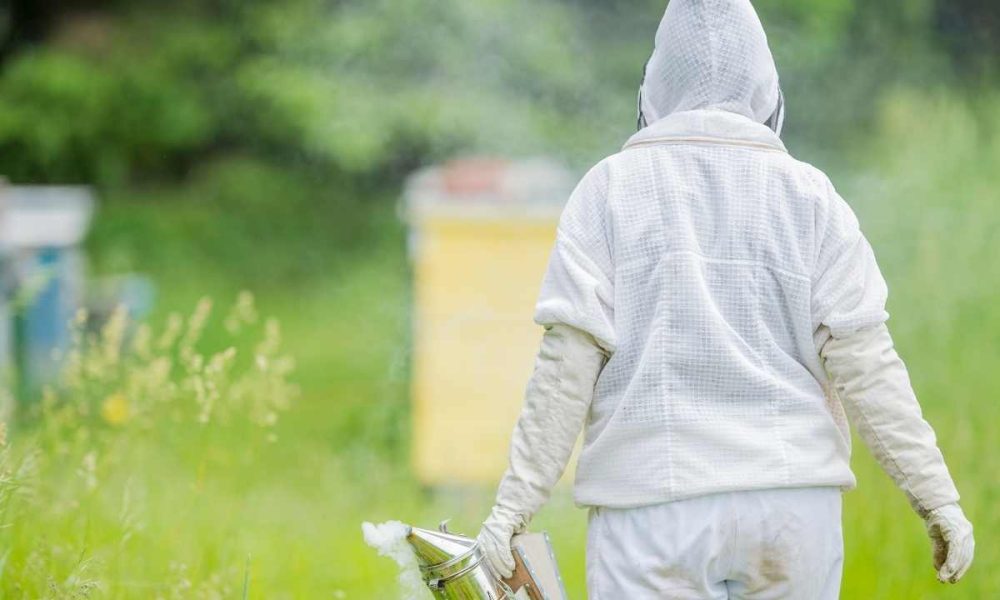
You hear the buzz of bees as they flit from flower to flower, collecting nectar and pollen. Their wings beat in a rhythmic pattern, creating a symphony of sounds that lulls you into a peaceful state. But did you know that these small creatures play a vital role in maintaining the delicate balance of our ecosystems? Bees are not just cute insects that produce honey; they are crucial pollinators that allow plants to reproduce and provide food for countless animals.
In recent years, there has been growing concern about the decline in bee populations around the world. This is due to various factors such as habitat loss, pesticide use, and climate change. But there is hope! Beekeeping has emerged as an effective way to promote ecosystem preservation and biodiversity. By keeping bees, we can take an active role in supporting these important pollinators while also reaping numerous benefits for ourselves and our communities. In this article, we will explore how beekeeping can be a powerful tool for environmental conservation and how you can get started on your own beekeeping journey.
The Importance of Bees in Ecosystems
Without the tireless work of these tiny pollinators, the natural world would be a less vibrant and diverse place. Bees are essential for pollination effects that allow plants to produce fruits, vegetables, nuts, and seeds – which we rely on for food. Pollination by bees also contributes to the growth of flowers and trees that provide habitat and food for other animals.
However, colony collapse disorder has been devastating bee populations worldwide. This phenomenon occurs when worker bees disappear from their hives without explanation. Scientists believe that pesticide exposure, habitat loss, climate change, and diseases may be contributing factors. Without bees’ crucial role in ecosystems, our food supply chain could collapse as well. Therefore, it’s essential to promote more beekeeping initiatives to support biodiversity preservation and prevent further colony collapse.
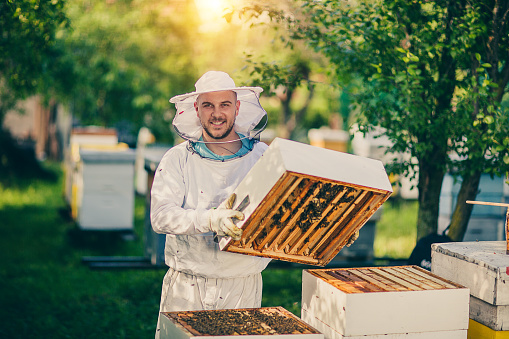
Beekeeping can help sustain bee populations while creating positive environmental impacts such as increasing plant diversity and providing habitats for other wildlife species. By learning about bee behavior and caring for them responsibly, you can contribute to preserving biodiversity while enjoying fresh honey production directly from your backyard hive!
The Benefits of Beekeeping
Beekeeping not only has advantages for farmers and honey lovers, but also contributes to the growth and well-being of local flora and fauna. The Benefits of Beekeeping are numerous, and they go beyond just producing honey. Here are some of the benefits that come with beekeeping:
- Promotes pollination: Bees play a vital role in pollinating plants, which helps increase crop yield and improve plant diversity.
- Enhances biodiversity: By promoting pollination, beekeeping helps create habitats for other animals such as birds and insects, contributing to overall biodiversity.
- Supports local ecosystems: Beekeepers often work with local communities to promote sustainable practices that support local ecosystems.
- Contributes to environmental conservation: Sustainable beekeeping practices help reduce pesticide use, promote natural habitats, and preserve natural resources.
By incorporating these Benefits of Beekeeping into your practice, you can contribute to the sustainability of Beekeeping while at the same time helping to preserve our environment. But how exactly does this all tie together? Let’s take a closer look at how beekeeping promotes ecosystem preservation and biodiversity.
Beekeeping and Biodiversity
You’re in for a treat because beekeeping can do wonders for the diversity of living organisms around you. Did you know that bees are essential pollinators? They help plants reproduce by transferring pollen from one flower to another, leading to the growth of fruits, vegetables, and other crops. Unfortunately, pollinator decline is becoming a serious problem worldwide due to habitat loss and pesticide use. However, beekeepers play an important role in conservation efforts by providing safe spaces for bees to thrive.
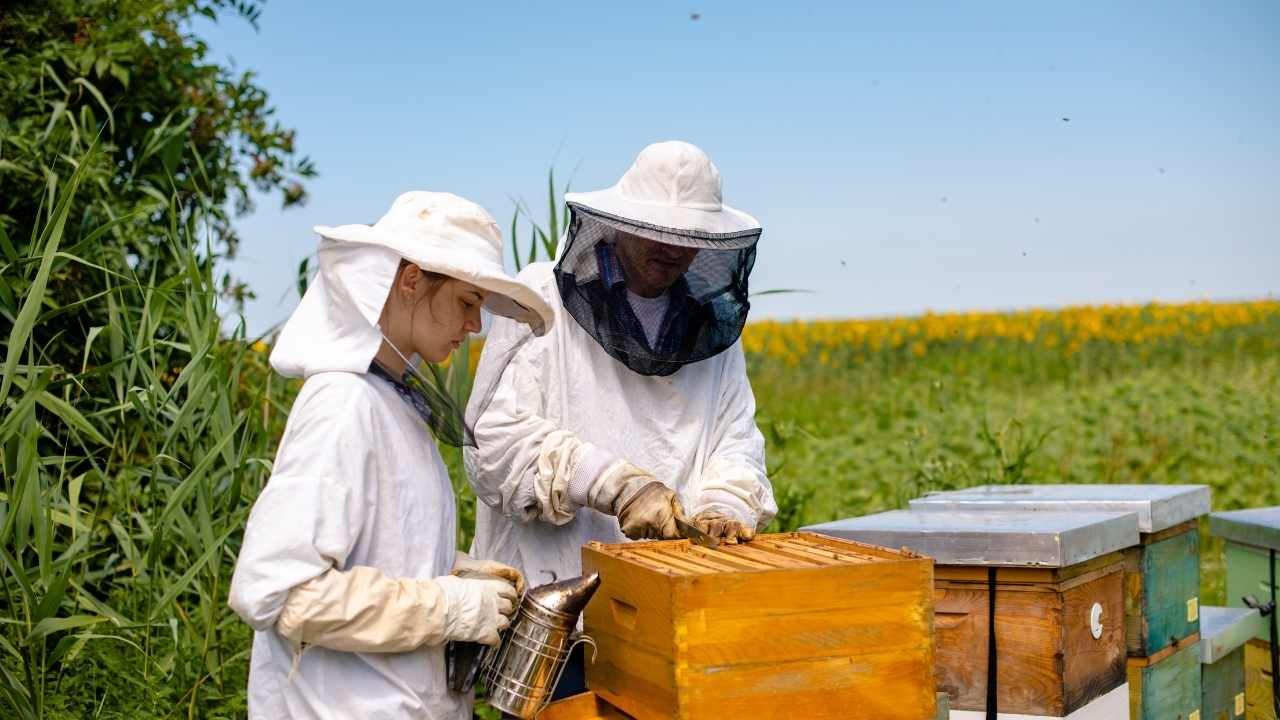
Beekeeping can also contribute to biodiversity by encouraging the growth of flowering plants and trees. Beekeepers often plant wildflowers and herbs in their apiaries to provide food sources for their bees. As a result, this promotes the growth of diverse ecosystems that support a variety of insect species and wildlife. By keeping honeybees healthy and thriving, we not only ensure our own food security but also help preserve the natural world around us.
By promoting biodiversity through beekeeping practices, we are taking critical steps towards environmental preservation. This is just one way in which beekeeping contributes towards protecting our planet’s delicate ecosystems – keep reading to learn more!
Beekeeping and Environmental Preservation
When it comes to beekeeping and environmental preservation, you play a crucial role in reducing the use of harmful pesticides. By opting for more natural and organic methods, you can help protect not only your bees but also other beneficial insects and organisms in your area. Additionally, promoting green spaces by planting wildflowers and native plants can provide important sources of food for your bees while also contributing to a healthier ecosystem overall.
Reducing the Use of Harmful Pesticides
By cutting down on harmful pesticides, you can create a safer and healthier environment for all living beings. As a beekeeper, it is important to use organic alternatives and implement Integrated Pest Management techniques to control pests and diseases in your hives. This not only benefits the bees but also the surrounding ecosystem as these methods do not harm other beneficial insects such as butterflies or ladybugs.
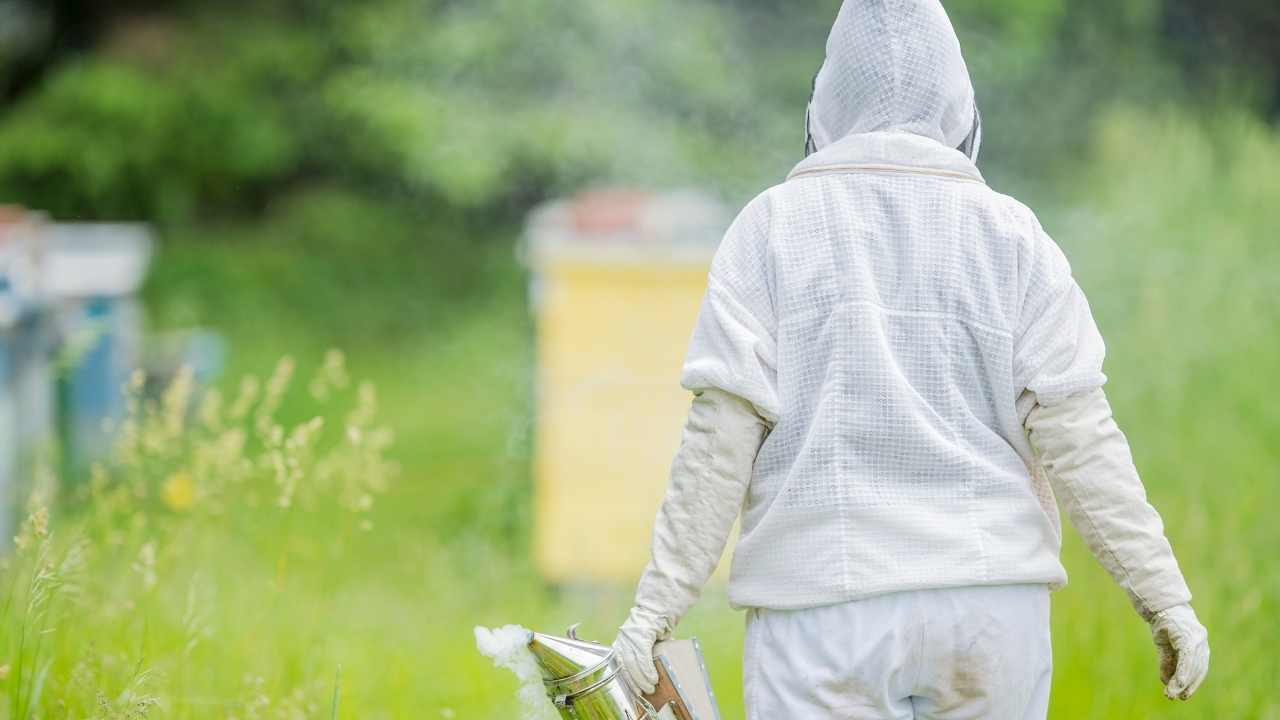
Using synthetic pesticides may have immediate effects on controlling pests, but they also have long-term negative impacts on the environment. Pesticides can kill off non-target organisms that play an essential role in maintaining biodiversity in ecosystems. By reducing the use of harmful chemicals, you are promoting a healthy ecosystem for all living organisms including humans. With this in mind, let’s explore how promoting green spaces can further support our efforts towards preserving biodiversity.
Promoting Green Spaces
Now that you know how reducing the use of harmful pesticides can benefit bees and the environment, let’s talk about another way beekeeping promotes ecosystem preservation and biodiversity. Promoting green spaces is not only beneficial for bees but also for humans. Urban areas are often built up with concrete and lack green spaces, which can lead to increased pollution levels, soil erosion, and less biodiversity. However, beekeepers can help combat these issues by promoting community involvement in urban agriculture.
By creating more green spaces in urban areas through community gardens or rooftop gardens, we can provide more habitats for bees to thrive in while also improving air quality and providing fresh produce for the community. Beekeeping can play a crucial role in this process as it encourages people to become more connected with their local environment and invest time in creating positive changes within their communities. By taking an active role in urban agriculture through beekeeping, we have the power to create a sustainable future that benefits both ourselves and our environment.
As you begin your journey into beekeeping, it’s important to remember how vital it is to promote green spaces and support urban agriculture initiatives within your community. By working together towards this common goal, we can create a healthier environment for ourselves and future generations while also supporting the survival of our precious pollinators. So let’s get started on this exciting adventure into beekeeping!
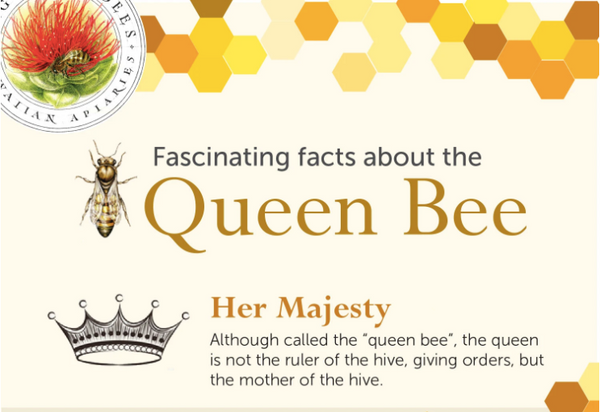
Getting Started with Beekeeping
If you’re interested in beekeeping, there are a few key points to consider when getting started. First, you’ll need to choose the right equipment – this includes hives, protective gear, and tools. Additionally, finding a suitable location for your beehives is crucial – factors like access to water sources and proximity to flowers will impact the success of your colony. With these considerations in mind, you can begin your journey as a beekeeper with confidence.
Choosing the Right Equipment
You’ll need to pick the right gear for the job when it comes to getting started with beekeeping; finding the perfect fit is often a matter of trial and error, but don’t worry – practice makes perfect! Here are five items you should consider when choosing your beekeeping equipment:
- Protective clothing: A beekeeper suit is essential for protecting yourself from stings. Look for a durable suit that covers your entire body.
- Smoker: Bees can become aggressive if they feel threatened, so having a smoker on hand to calm them down is crucial.
- Hive tool: This tool will help you pry open hives, remove frames, and scrape off excess wax and propolis.
- Bee brush: Use this soft-bristled brush to gently move bees around without harming them.
- Feeder: A feeder will provide supplemental food for your bees during times of scarcity.
Remember to regularly maintain your equipment by cleaning it after each use and repairing any damages. Additionally, make sure your hive design fits the size and needs of your colony. With the right tools and maintenance practices in place, you’ll be well on your way to becoming a successful beekeeper.
As you begin to choose the right equipment, keep in mind that finding a suitable location for your hive is equally important.
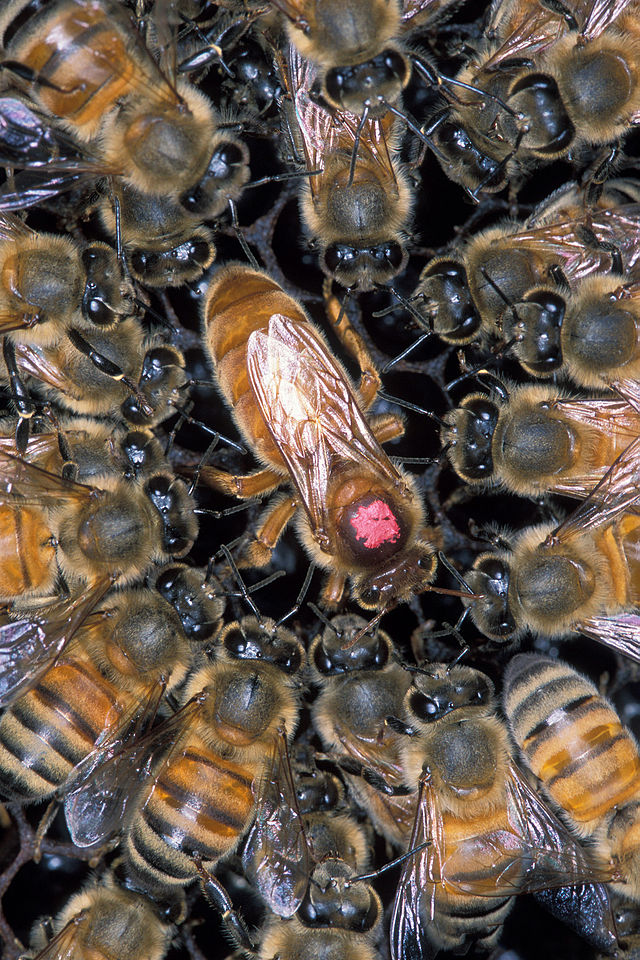
Finding a Suitable Location
It’s crucial to find the perfect location for your hive, as it can greatly impact the health and productivity of your colony. One thing you should consider is land availability – do you have enough space in your backyard or property? It’s important to ensure that there are no zoning restrictions or regulations that could prevent you from keeping bees. Additionally, make sure that the area around the hive is free from pesticides and other harmful chemicals.
If you live in an urban area, don’t let that stop you from beekeeping! Urban beekeeping has become a popular trend in recent years as more people recognize the importance of honeybees in our ecosystem. However, finding a suitable location can be challenging. Look for rooftops, balconies, and community gardens where bees can thrive without disturbing neighbors. Remember to always check local laws and regulations before setting up your hive. Overall, finding the right location is essential for successful beekeeping and promoting biodiversity in our environment.
As we wrap up this discussion on finding a suitable location for your beehive, it’s important to note that beekeeping is not only beneficial for honey production but also plays a vital role in preserving ecosystems worldwide. By providing pollination services, bees help plants reproduce and maintain biodiversity which benefits humans and wildlife alike. In conclusion, with proper equipment and careful consideration of location, anyone can become a successful beekeeper while making a positive impact on our planet’s future.
Conclusion: The Future of Beekeeping and Ecosystem Preservation
Oh, you definitely won’t have to worry about the fate of our planet if we just sit back and do nothing. It’s becoming increasingly clear that every action we take has a direct impact on our environment, and beekeeping is no exception. As we look towards the future of beekeeping, there are several important factors to consider.
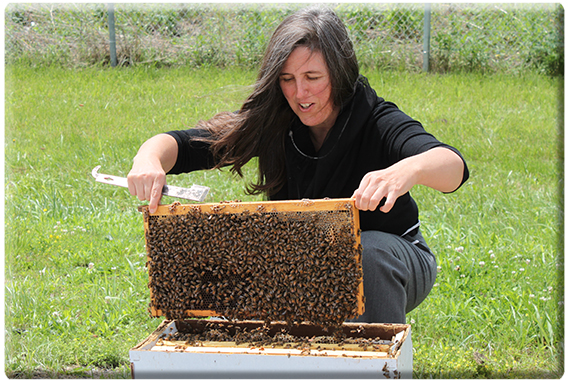
Firstly, innovation and education will be key in ensuring the continued success of this practice. With new technologies emerging all the time, it’s important for beekeepers to stay up-to-date with the latest tools and techniques available. Similarly, educating others about the importance of bees in preserving our ecosystem can help spread awareness and encourage more people to get involved in beekeeping themselves.
Secondly, sustainability in beekeeping remains an ongoing challenge. The use of pesticides and other harmful chemicals can have devastating effects on both bees and their surrounding environments. By adopting sustainable practices such as using natural remedies instead of harsh chemicals or reducing carbon emissions during transportation, we can ensure that beekeeping remains a positive force for biodiversity preservation.
Finally, it’s crucial that we continue to support local farmers who rely on bees for pollination services. By purchasing honey from local producers or supporting community gardens that incorporate pollinator-friendly plants into their landscapes, we can make a tangible difference in preserving these essential creatures. Through innovation, education, sustainability efforts, and community support initiatives like these—we can secure a bright future not just for bees but for ourselves as well!
Frequently Asked Questions
What kind of bees are best for beekeeping?
If you’re looking to start beekeeping, you may be wondering which type of bee is best for your apiary. Honey bees and bumble bees are both popular choices, but each has its own unique benefits. Honey bees produce more honey than bumble bees, making them a great choice if you’re interested in harvesting your own honey. They also have a structured social hierarchy, which can make it easier to manage your hive. However, bumble bees are better pollinators than honey bees and can help increase crop yields in your garden. When starting out with beekeeping equipment essentials, make sure to invest in protective gear like gloves and a veil to keep yourself safe from stings. With the right tools and knowledge, either honey or bumble bees can thrive under your care.
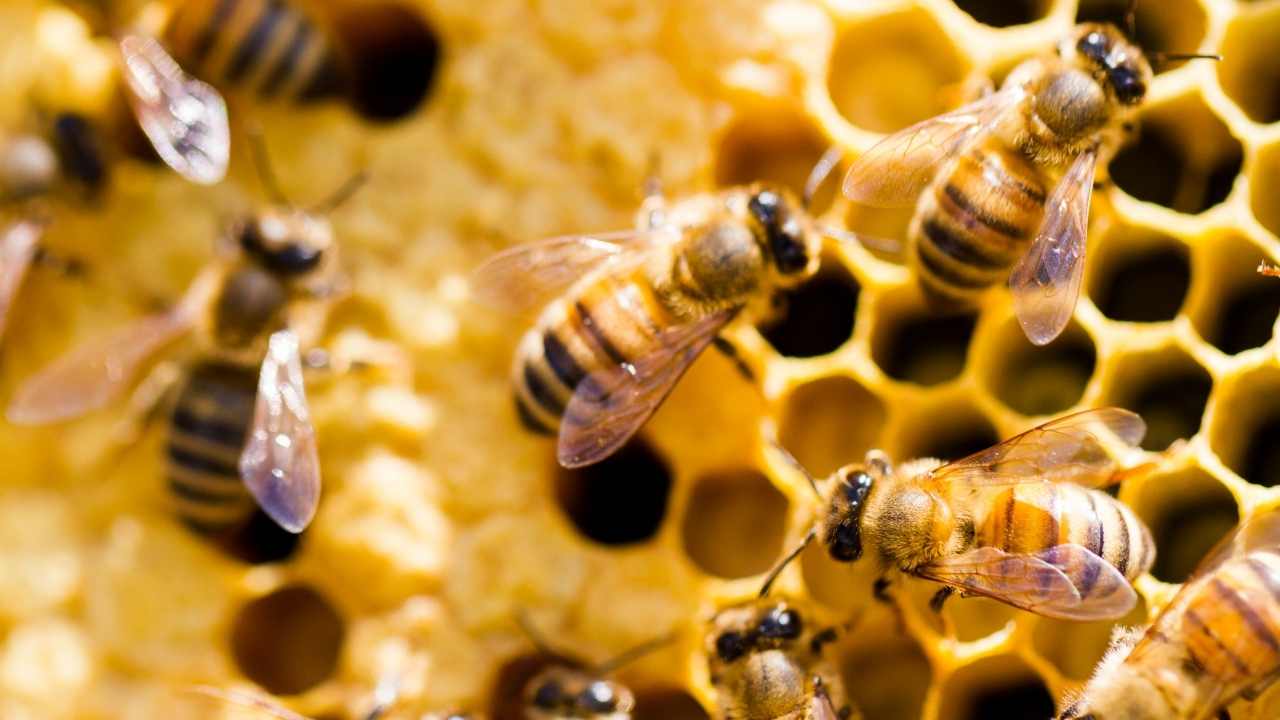
How does beekeeping affect local economies?
Looking to make a positive impact in your local economy? Look no further than beekeeping. Not only does honey production provide a valuable commodity for sale, but the process of beekeeping creates jobs and opportunities for small businesses. In fact, one study found that every hive can generate up to $400 in additional income for its community per year. So whether you’re a beekeeper or simply looking to support local economies, consider the humble honeybee as a powerful tool for economic growth and sustainability.
What are the risks of beekeeping for both the bees and the beekeeper?
Beekeeping safety should be a top priority for any beekeeper. Proper hive management is essential to ensure the health and well-being of both the bees and the beekeeper. It’s important to wear protective clothing, use smoke to calm the bees during inspections, and handle the hives with care. Beekeepers must also be aware of potential allergies or reactions to bee stings and have an emergency plan in place. Additionally, they need to monitor their hives for pests and diseases that could harm their colonies. With careful attention to beekeeping safety and hive management techniques, hobbyist or commercial beekeepers can enjoy the benefits of honey production while protecting these vital pollinators.
How does beekeeping impact other pollinator species in the ecosystem?
Imagine a garden filled with various types of flowers and plants. Each flower blooms at a different time and attracts its own unique pollinator, from bees to butterflies to hummingbirds. Now imagine if one type of pollinator dominated the ecosystem, outcompeting all other species for resources. This scenario is similar to what can happen in beekeeping when honeybees are introduced into an area without consideration for pollinator diversity. Colony competition can occur as honeybees monopolize resources, leaving little for other essential pollinators. It is important to recognize that while beekeeping has many benefits, it must be done responsibly with the preservation of pollinator diversity in mind.
What are some common misconceptions about beekeeping and its impact on the environment?
When it comes to beekeeping, there are a lot of misconceptions out there. Many people believe that keeping bees is harmful to the environment, but in reality, beekeeping can have many environmental benefits. For example, honeybees play an important role in pollinating plants and crops, which helps to support biodiversity and preserve ecosystems. Additionally, beekeepers often use natural methods for pest control and fertilization, which can reduce the need for harmful chemicals and promote sustainable farming practices. Despite these benefits, however, public perception of beekeeping remains mixed. Some people view it as a hobby or lifestyle choice rather than an important contribution to the environment. By educating others about the positive impact of beekeeping on our planet, we can help change this perception and encourage more people to get involved in this important work.
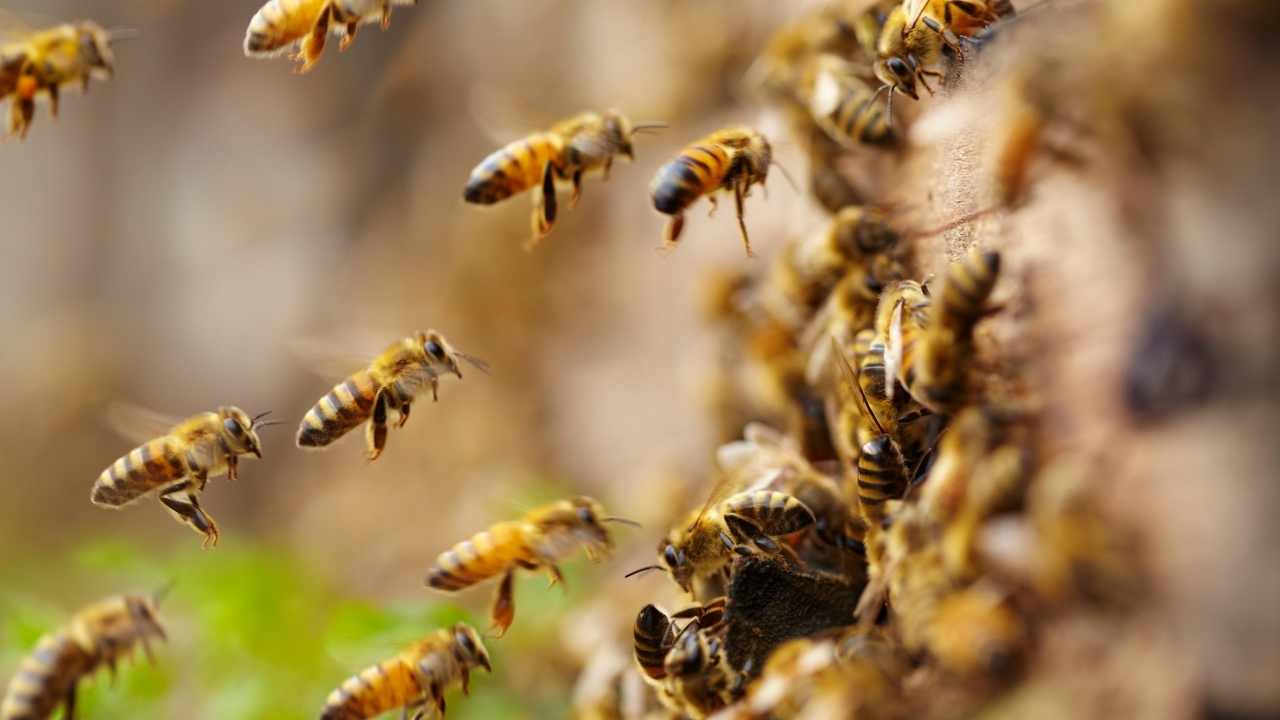
Conclusion
So, you’ve learned about the importance of bees in ecosystems and the many benefits of beekeeping. But what does this mean for the future?
Well, it means that beekeeping can play a crucial role in promoting ecosystem preservation and biodiversity. By providing safe habitats for bees to thrive, we can ensure that they continue to pollinate plants and contribute to the health of our environment. Additionally, by practicing sustainable beekeeping methods, we can reduce our impact on the planet and help protect other species as well.
But perhaps most importantly, beekeeping offers a way for us to connect with nature in a meaningful way. As we learn more about these fascinating creatures and the role they play in our world, we gain a deeper appreciation for the beauty and complexity of our natural world. So why not consider getting involved in beekeeping today? Who knows – you may just be surprised by how much joy it brings into your life!

Roger Thomas is a seasoned beekeeper and hive architect with a deep-seated passion for sustainable living. His fascination with bees has shaped his professional career, giving him practical and theoretical expertise in bee behavior, colony health, and optimal hive conditions. Roger’s technical skills shine in his bespoke hive creations that cater to the specific needs of diverse bee species, while his sustainable practices promote environmental balance and the wellbeing of the bee population.
As he continues his journey in beekeeping, Roger has become a dedicated advocate for responsible practices and an insightful educator in his field. His posts aim to inspire new beekeepers, underline the importance of sustainability, and showcase the remarkable contribution bees make to our ecosystem. Roger invites you to join him as he delves into the world of bees and the rewarding, honey-sweet art of beekeeping.
